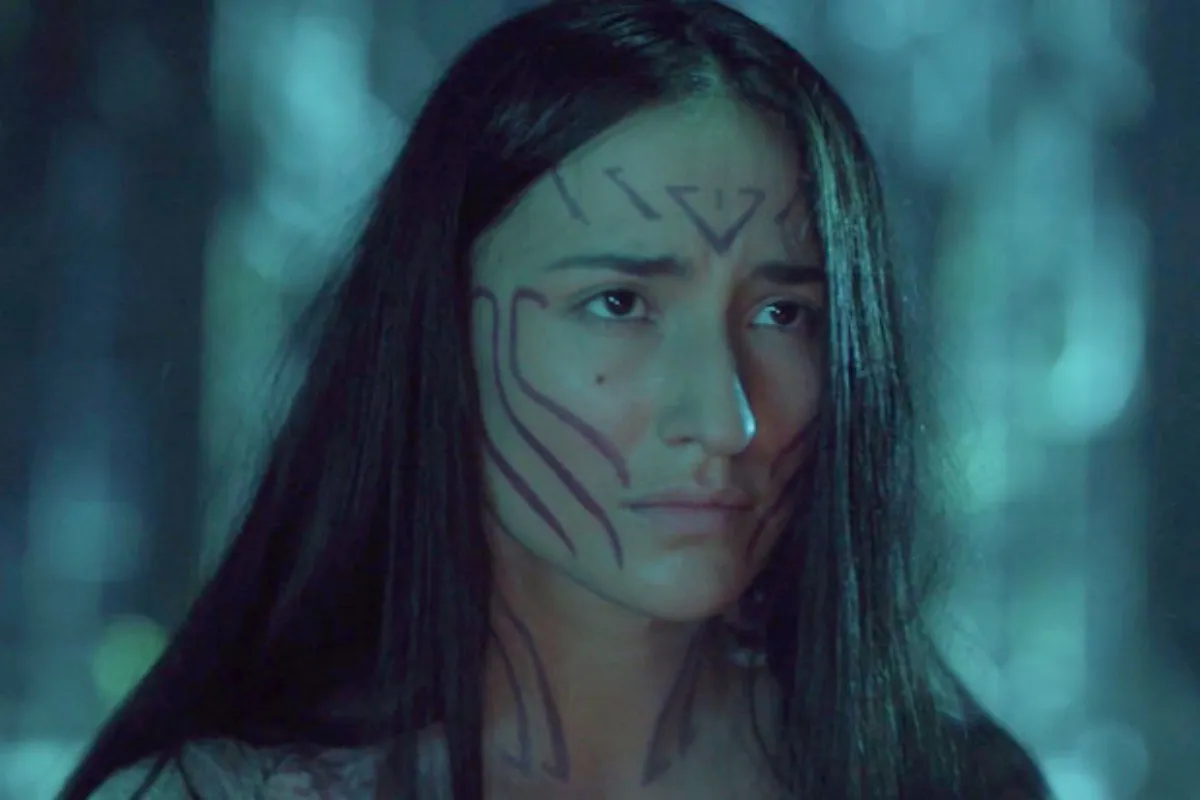HBO’s Lovecraft Country is a show that I have deeply enjoyed, but that doesn’t mean it is above criticism, and as I’ve stated before, one of their biggest missteps was the depiction of Two-Spirit character Yahima. Showrunner Misha Green seems to agree.
Green was answering questions on Twitter, and one user asked about the description of Yahima.
For those who may not recall, Yahima appears in the episode “A History of Violence,” where they are awakened by Tic, Leti, and Montrose after being trapped in an evil white man’s vault for more than a century. They are shown to be Two-Spirit through a nude scene that exposes their penis, and it is very voyeuristic, in my opinion.
Yahima is then killed by Montrose because they have knowledge that Montrose fears might harm his family.
Green explained in a Tweet, responding to a question on the topic, that she “wanted to show the uncomfortable truth that oppressed folks can also be oppressors” but ultimately “failed in the way I chose to make it.”
I wanted to show the uncomfortable truth that oppressed folks can also be oppressors. But I didn’t examine or unpack the moment/portrayal of Yahima as thoroughly as I should have. It’s a story point worth making, but I failed in the way I chose to make it. #LovecraftCountry https://t.co/bDRGOfPClo
— Misha Green (@MishaGreen) October 12, 2020
As I am not Two-Spirit or Indigenous, it isn’t my place to put a stamp of approval on Green’s response, although I am glad that she acknowledged that this was a failure on her part. What I do want to touch on is how this moment highlights the way in which we can sometimes fail to be allies when we aren’t in communication with the communities we are trying to uplift.
Having a Two-Spirit person consult on this episode would not have guaranteed the scene would have been perfect representation, because no such thing exists, but it would have been reflecting something authentic about that experience—especially when Yahima will be one of the very few Native and Two-Spirit characters that will appear on television this year.
Even for those who may take issue with some of the choices made by Green in how she depicts Black history intersecting with this horror/science-fiction story, she is a Black American woman infusing her own choices and tastes into a narrative about her people. The same care she has taken with that should be extended to Yahima and what a character like that being treated as a plot device would look like.
That path to Hell is paved with good intentions, and I think that this is a reminder to everyone that Indigenous people are watching. They are not exotic magical beings who can be discarded at the end of an episode. They are living people, who are not going to be quiet about being stereotyped, especially by shows that can do better.
(image: HBO)
Want more stories like this? Become a subscriber and support the site!
—The Mary Sue has a strict comment policy that forbids, but is not limited to, personal insults toward anyone, hate speech, and trolling.—










Published: Oct 14, 2020 12:22 pm